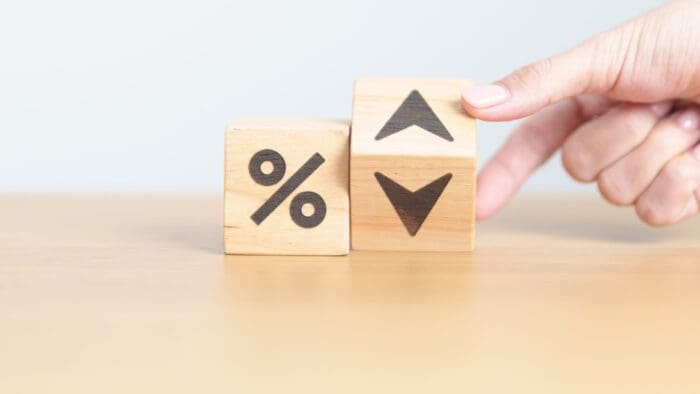With a distinguished career in the field of options education, Dr. Russell Rhoads PhD. Of EQDerivatives discusses the role of research in trading and how his observations in options markets enables him to support or refute commonly-held theories about trading patterns.
Options involve risk and are not suitable for all investors. For more information read the Characteristics and Risks of Standardized Options, also known as the options disclosure document (ODD). To receive a copy of the ODD call 312-542-6901 or copy and paste this link into your browser:
http://www.optionsclearing.com/about/publications/character-risks.jsp
Summary – Traders’ Insight Radio Ep. 18: Is There a Doctor in The House?
The following is a summary of a live audio recording and may contain errors in spelling or grammar. Although IBKR has edited for clarity no material changes have been made.
Andrew Wilkinson
Hello everybody, welcome to Interactive Brokers Traders Insight Radio Podcast and today’s guest is no stranger to Interactive Brokers Webinar program, welcome Doctor Russell Rhoads. How are you, Russell?
Dr. Russell Rhoads
I’m doing OK. Thanks Andrew. I’m still getting used to that doctor title. It’s just a few months old.
Andrew Wilkinson
Well, that’s kind of one of the reasons we’re here today to talk about this path of education that you took. So, let’s just back up a little bit here. Your career’s taken you from the Chicago Mercantile’s Eurodollar options pit back in the 1990s to becoming a finance professor at Indiana University, right? So, connect the dots for us. What’s that journey like?
Dr. Russell Rhoads
Well sure, my journey back in the early 90s was a lot like many people in the Chicago area where you decided I wanted to be involved in the financial markets and got a job running around the CME floor. Got picked up as a as a clerk by somebody in the euro dollar option pit. 2-3 months into my short floor career down there, figured out that one of the problems with being an option trader on the floor or working with an option trader on the floor is you’re really waiting for order flow to come in, and there’s a lot of standing around and waiting which I don’t sit still particularly well.
Also, when I was at CME Group I was there when they introduced Globex, which is pretty much how everybody trades all of those futures. I feel like I was a big beneficiary of electronic trading coming along. I left the floor, got a masters and MS in finance ’cause I felt like that would help me with an upstairs-type career. Got a job as an analyst/ trader for a trust department of First Tennessee Bank in Memphis, where I grew up. Then transitioned over to working at a hedge fund in Atlanta, Caldwell and Orkin which we were fairly successful. Worked for two or three other hedge funds over a little over a 20-year Buyside career.
And then just after the financial crisis, I got hired by Cboe to work in the Education division and that was kind of my retirement from the active trading. And that was in 2009. I was there for about a decade, worked my way up to running the education division there. Found that I really liked teaching, I had never done it before. In fact, I got hired to write and not teach, but Cboe invested an awful lot in me. Had people from Medill over in Northwestern come over and teach me how to answer questions like you’re going to ask me today.
And then I also had a close relationship with somebody at Oklahoma State and Oklahoma State has an accredited PhD program, and when I say accredited, that means that if I work for a business school that’s accredited, I don’t count as someone, even if I’m not a tenure tracked professor. I don’t count against their, let’s say score with respect to how many classes are being taught by somebody that has a PhD.
And they’re not a lot of people that have some really good experience like I think I do relative to academics and the PhD. So, that made me really attractive. I was at Loyola and then in this past year I moved over to the Kelley School of Business at Indiana, which I just love.
Andrew Wilkinson
So, tell us about the whys and the dedication of getting a doctorate, what’s involved and how long did it take ’cause this this wasn’t a short period of time was it?
Dr. Russell Rhoads
No and it did take me a little longer than some other people in my program. I was not the first one to get through. It’s a program at Oklahoma State that is tailored toward people that are working full time and you do three semester or three academic years in two years, which means we did a full semester in the summertime. In fact, there was no break the first two years and then the third year you’re supposed to be working on your dissertation. And if you follow the schedule, you can finish in three years. I was a little bit under five but did finally get it done and about half the people finish on time. About half the people finish a little bit late. Either way, I’m a doctor now.
Andrew Wilkinson
Very good, very good. So how does earning a doctorate help you today? What’s the payoff?
Dr. Russell Rhoads
The payoff is I did learn an awful lot about how to go about doing a really rigorous academic type of research, and I had been doing research in the past where I would look at things within the market, but I was doing it as a practitioner to try to come up with systematic ways to maybe trade options, systematic ways to trade futures. Which is something I did an awful lot of back when I was trading actively. But I had never really taken it a step further and rigorously tested things like academics do.
Now I do that, and I have the ability and the tools to do that. Plus, if you’re at a large school like Indiana or even Loyola, the access to data versus professionals is just incredible. And schools are supportive of people putting research out that brings positive attention to the school and that’s one of the things that I’m doing now at Indiana.
Andrew Wilkinson
And I guess you even get a lot of the students to come to some of the webinars we run right?
Dr. Russell Rhoads
I do, there’s always two or three students in my classes that are very interested in the option markets or the financial markets. I don’t actively, I kind of keep these two worlds separate, but every once in a while, I’ll have a couple of students that dropped in on a webcast and we recently had one where a couple of students showed up. They asked me the next day in class a couple of extra questions related to the webinar and then they gave me an idea as to what I should do next month, where they were missing the information. So that that was good too.
Andrew Wilkinson
Yeah, and talking of which, so we’ll come to a couple of those case studies in a moment, but incidentally folks, these ideas form the backbone of Russell’s webinars with Interactive Brokers. And Russ, you told me recently that you don’t mind getting beaten up by the audience. Just elaborate on that and how important feedback is to the process.
Dr. Russell Rhoads
It’s extremely important and typically I’ll put a high level here’s what I’ve been working on and get a lot of really great questions and suggestions during the webcast. And you know that if you’re one of the hosts of the webcast, you actually get to– The questions are saved on your hard drive after the call, so I can actually go back through the question as opposed to looking at them with the mentality that I’m going to give you a one- or two-minute answer and dig more. And then I do respond to some of the people via email that had had sent me questions as well.
But the idea when I do IB webcasts is I consider the customers, your client base, to be at a higher level than a lot of other individual brokerage firm. There’s a lot of professionals that do show up on the calls, so I feel like I get really good feedback out of you guys and then it’s like “Got an idea, here’s the preliminary results”, and then I go back and spend a lot more time based on the feedback I get from you guys.
Andrew Wilkinson
And we had some very, very good feedback. IBKRwebinars.com go and have a look at the contributors and then EQ derivatives and find any of these recorded webinars with Doctor Rhoads that we’re discussing here.
We did a session very, very recently and Russell spent half of his time just delivering the PowerPoint presentation and then half of the time was feedback and questions from the audience. And I was able to get any unresolved questions over to Russell afterwards, so it’s a really good collaboration and there’s a lot of good two-way flow that certainly helps Russell with future presentations and also augmenting anything that he’s already working on.
Andrew Wilkinson
But walk us through the design of a subject, what the starting point is, where you conceive of a particular notion and where does the research lead you to?
Dr. Russell Rhoads
Sure. Well, typically the research is testing something that I think we all are somewhat familiar with within the financial markets or a pattern that we see often or looking at periods when volatility might be overpriced or underpriced. It’s typically one of those things that that we get a feel for just from watching the markets from day to day and then I go about trying to actually quantify it into a systematic method of trading the markets. A prime example is in my baby, the VIX. Where VIX futures and the spot VIX will converge when we get close to expiration and expirations on a Wednesday. So typically, the Monday, Tuesday leading up to that Wednesday, you’ll see the front month future trade right in line with the spot index. And so, what I looked at was the middle of the week before that, like Wednesday and Thursday. If you shorted the future, that’s going to expire the following week could you benefit from it drifting lower and matching up with the index and that works.
It’s something we see every expiration, but I quantified that it does work if you systematically and I know following things systematically can be tough, especially in a high volatility market. But if you systematically followed something like that, and I think we did that back in the– I did an update to that back in the fall. I had originally presented that to IB people maybe five years ago and it has continued to work since then, so that’s where the idea came behind from that one.
We also did something on block option trades. Block option trades with the increased retail presence in the option market you’ve got a lot of folks on FinTwit and even CNBC talking about a seeing a large option trade in and trying to get into the mind of the trader behind it. I did an initial sweep of the biggest block option trades over about a six-month period like a top trade each month and the results were exactly opposite of what people that want you to buy a subscription from them would say. And I’ve even talked to some of those folks with those preliminary results and it’s just blindly following block options trades, it’s not a really good way to go about trying to profit in the option market. Probably stick with what you know instead of you know something that you just happen to see.
Andrew Wilkinson
So, what you’re saying is, it’s all well and good following the money, you just got to know where it’s going.
Dr. Russell Rhoads
Exactly, and you’ve got to have an idea behind why. If the biggest option trade is a purchase of an individual equity put, that could just be a very large holder hedging themselves. And even if those puts expire out of the money, they’re OK with it because they–hopefully they’re OK with it because they likely made money off of the stock trending higher. So, you also have to think about, you have to consider what may be going on behind the option trades. A lot of them were call purchases, which you and I were both very surprised at and the success rate was a little under 15% following those trades. So hopefully in– I’m not on a soapbox or anything, but I really want the financial markets to have some integrity to them. I think speculating is great, but I also want people to go in with both eyes wide open, when people are telling them that there’s a certain way to go about making money in the financial markets.
Andrew Wilkinson
That’s right. You know, I used to speak to reporters all the time, “Oh, is this a really bullish trade? What does it mean for the outlook?” I don’t know. I don’t know what the other side of the trade might be or might not be and you would just have to monitor it, right?
So, then we talked about the earnings. Let’s talk about that one a little bit, the construct of that ’cause that was a very interesting event.
Dr. Russell Rhoads
Well, the earnings announcements in this—Actually, some of this is in my dissertation where I took a look at high reputation, low reputation and a bunch of other factors but then also took a look at outlier earnings moves and I have my own way of defining those. And the way that I define a good earnings announcement, or a bad earning announcement is if the stock moves up more than the absolute value of the average move over the last eight quarters. So, let’s say that Microsoft on average, moves up or down 5% off earnings. If you get anything above 5% to the upside, I consider that positive earnings announcement.
I don’t care if they beat earnings. I don’t care about the fundamentals and on the other side, if they dropped 6% and again that 5% is the average move, I’m going to say that was a negative earnings announcement. And in this day and age, a company can put up really good earnings numbers but if sales look like they’re slipping, if they say something somewhat negative on the call, that’s actually not a positive announcement. So, you have to take a look at price action to determine whether something is a positive announcement or not.
Andrew Wilkinson
So how long would it take you to finalize something? Where do you go with it, or does it remain open-ended, and it needs ongoing research?
Dr. Russell Rhoads
What I try to do, especially with like this earnings thing that I’m talking about or also the VIX thing that I was talking about, I want to go far enough back that I go through kind of a bearish and bullish market cycle. So, it’s not just the influence of the overall market that is impacting the price reactions that I’m seeing out of the stocks. So that’s one of the things that I like to do and it depends on each of the different studies. Also depends on how many observations in time periods I can get. With the VIX thing that go all the way back to 2007 because it’s a once-a-month trade on standard expiration. For the block option study that we’re doing, I’m going back. I’m using 2019, 2020 and 2021 and the top three trades from each trading day there.
It’s a very manual process, one of the great things about being a professor is I have folks that want to help. I also have a budget to help reimburse them for helping me out like that. That one is going to take some time because it’s very, very labor intensive. The VIX one has been a consistently updated one and I talked about the earnings. The block option trade or the earnings announcement one, the data that I have goes back to about 2011. So, anything that I do around earnings announcements goes back a little over 10 years now.
Andrew Wilkinson
And you put out a lot of this stuff for free online, you just tweet it out right? So, people don’t have to go through the pain that you’re going through.
Dr. Russell Rhoads
Right, they don’t have to go, but also again, I find when I share stuff although Twitter can be pretty brutal, that it helps. The feedback I get helps me tweak things that I’m working on or definitely makes me think about things in a in a different way then maybe the approach that I was taking. So yeah, I just I put everything– I mean, I’m just kind of like an open book as far also, as all of these things go. I enjoy being involved in the financial markets.
I do get consulting jobs where I’ll dig into trading certain product on behalf of exchanges, but for the most part I’m really just trying to do this because I enjoy it. I like the interaction that I get from it. And I actually had a student ask me “How much did they pay you for doing the Interactive Brokers webcast?” I said, “They don’t pay me at all.” I do it because I really enjoyed the feedback that I get when I do them. It’s nice when you reach a point in your career where you do the things that you like and I’m just doing what I like now.
Andrew Wilkinson
Yep, so putting this into practice then. How does an option trader make use of the research?
Dr. Russell Rhoads
I think what you should do, — Let’s go with the VIX, because that’s just the VIX study ’cause that’s a real simple one when we’re audio only. But the VIX one I talk about how the system that I have been trading now for some time and that I share with everyone, involves shorting the front month VIX future on Thursday and getting out of that short on Tuesday afternoon.
Now there are things that that come into play with respect to screening that, for instance, if the VIX future is at a discount to the index, don’t trade ’cause the whole idea there is the index and the futures contract converging early the following week. And if the index is at a discount, well then you would expect the future to, barring a volatility event, the index to move lower.
Dr. Russell Rhoads
People have taken that, and they’ve applied buying puts. They’ve applied selling slightly out of the money call spreads, they’ve applied calendar spreads, and I even have one person that applied doing a calendar fly, where they short the front month, buy two of the second month and then buy and then short the third month. And so, I give you something like that at a very basic level and the people who’ve done very well with it and have tweaked it to their own style or tried to apply it to different markets as well. I don’t want somebody to listen to me on an Interactive Brokers webcast and then blindly replicate what I’m showing. I want you to take it, look at it, maybe even paper, trade it, get a feel for what it is I’m talking about. Make sure it matches up with your personal risk parameters, but I feel like that’s how futures or options traders can try to take advantage of some of the things that I talk about.
Andrew Wilkinson
Well, that’s been a fantastic look at the man behind the doctor. So, Russell, thank you very much for joining us. Don’t forget folks, Doctor Rhoads is a regular webinar presenter with us. You can find the many prior events as I explained earlier by looking under EQ derivatives on the contributors’ page at ibkrwebinars.com and you can contact Russell via email on Rhoads@eqderivatives.com at R-H-O-A-D-S @eqderivatives.com and you can also follow him on Twitter by entering @Russell Rhoads. Russell, thank you very much.
Dr. Russell Rhoads
Very cool, thanks a lot, Andrew.
Andrew Wilkinson
OK, we’ll see you next time.
Disclosure: Interactive Brokers
The analysis in this material is provided for information only and is not and should not be construed as an offer to sell or the solicitation of an offer to buy any security. To the extent that this material discusses general market activity, industry or sector trends or other broad-based economic or political conditions, it should not be construed as research or investment advice. To the extent that it includes references to specific securities, commodities, currencies, or other instruments, those references do not constitute a recommendation by IBKR to buy, sell or hold such investments. This material does not and is not intended to take into account the particular financial conditions, investment objectives or requirements of individual customers. Before acting on this material, you should consider whether it is suitable for your particular circumstances and, as necessary, seek professional advice.
The views and opinions expressed herein are those of the author and do not necessarily reflect the views of Interactive Brokers, its affiliates, or its employees.
Disclosure: Margin Trading
Trading on margin is only for experienced investors with high risk tolerance. You may lose more than your initial investment. For additional information regarding margin loan rates, see ibkr.com/interest
Disclosure: Options Trading
Options involve risk and are not suitable for all investors. For information on the uses and risks of options, you can obtain a copy of the Options Clearing Corporation risk disclosure document titled Characteristics and Risks of Standardized Options by going to the following link ibkr.com/occ. Multiple leg strategies, including spreads, will incur multiple transaction costs.
Disclosure: Futures Trading
Futures are not suitable for all investors. The amount you may lose may be greater than your initial investment. Before trading futures, please read the CFTC Risk Disclosure. A copy and additional information are available at ibkr.com.















Join The Conversation
For specific platform feedback and suggestions, please submit it directly to our team using these instructions.
If you have an account-specific question or concern, please reach out to Client Services.
We encourage you to look through our FAQs before posting. Your question may already be covered!